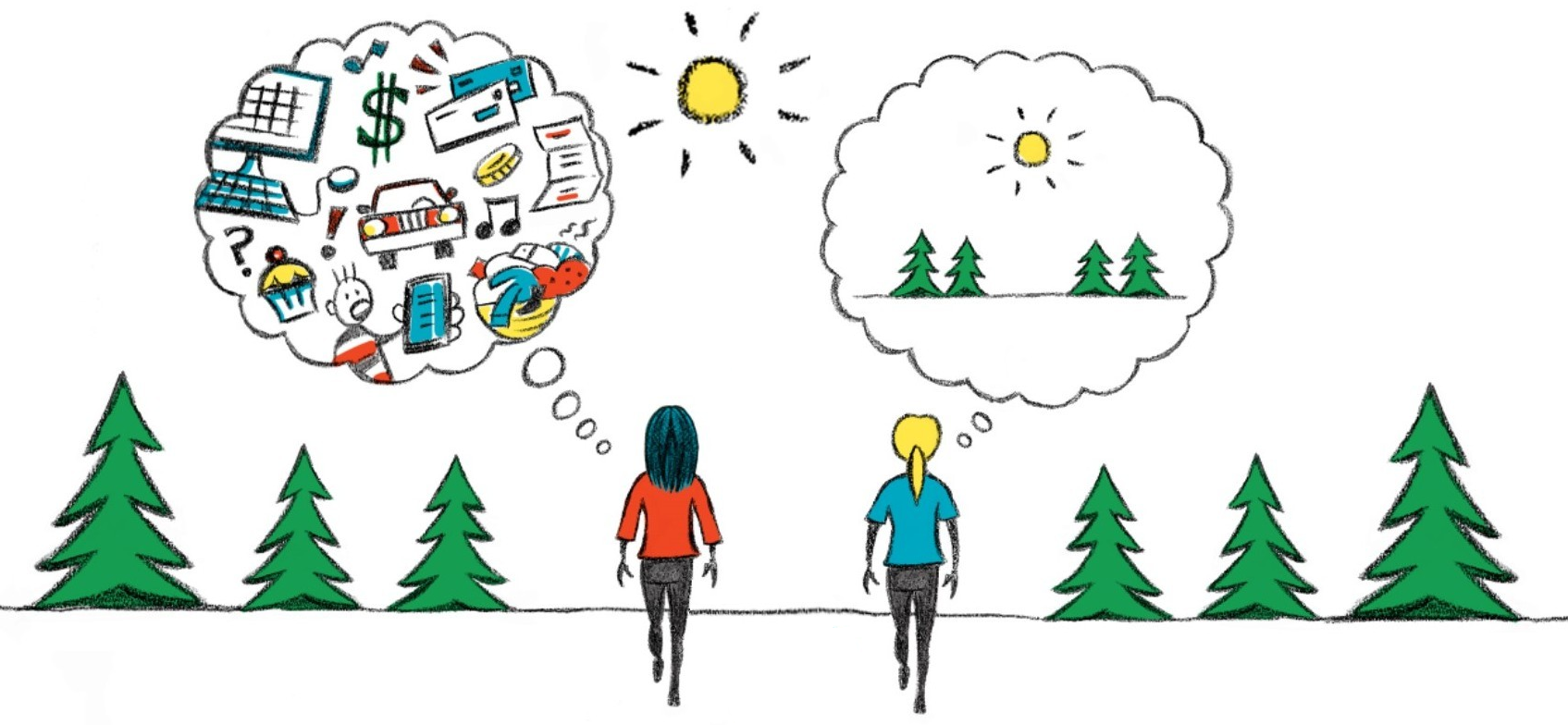Mindfulness is something that is talked about regularly and often with disdain in the public sector. This is because mindfulness has become synonymous with meditation, yoga, and many other activities. These activities are some methods by which people learn to cultivate the mental skill of mindfulness, but none of these activities are actually mindfulness. In fact, many of these activities are extremely difficult for people, and sometimes damaging. Meditation, for instance, can be quite damaging to people with trauma as this state of focused awareness can actually heighten trauma symptoms. It can also be very frustrating to people with ADHD or anxiety who find quieting their mind almost impossible. This leads many people to avoid anything related to mindfulness, which is disappointing to us in the field of therapy since we know how beneficial it is to so many people.
Mindfulness is defined in the Oxford Dictionary as, “a mental state achieved by focusing one’s awareness on the present moment, while calmly acknowledging and accepting one’s feelings, thoughts, and bodily sensations, used as a therapeutic technique.” As you can see by this definition, it is a mental state, not an activity. You can develop this mental state through any number of activities, so don’t let the popular definition of it turn you off this important skill. Developing this mental state takes intentionality: purposefully working to stay calm, focused on the present moment, and aware of whatever thoughts pop into your mind or sensations that show up in your body without getting caught up in them or figuratively hiding from them. This is a lot easier said than done and is often described as one of the hardest things people have had to learn but one of the most beneficial skills they have developed.
Often learning to develop this mental state means breaking it into smaller chunks: 1) learning to calm your mind and body, 2) learning to bring your focus to the present moment and bring it back over and over again, 3) learning to notice what pops into your mind or body without getting sucked into that thought or experience, and then, 4) putting it all together. Because of these smaller skills that go into learning to be mindful, you often see programs designed with meditation or other mental exercises as their base. We like to help you understand the bigger picture of what you are doing and why, so that you can tolerate and stick to these smaller, sometimes annoying tasks of learning skills. Think of it as learning and developing your skill in a sport. If I want to become a good hockey player, I must learn lots of little skills, like passing a puck, stopping when skating, skating backwards, and shooting on a net. These can get very boring very fast when practiced alone over and over without any idea of how they go together. When I realize these skills go together to allow me to play hockey, then practicing these skills becomes tolerable – not always fun, but at least worthwhile. Just like the skills of mindfulness.
One program we like to share with the public is MindWellU, which is a program sponsored by the Government of New Brunswick (https://app.mindwellu.com/newbrunswick/landing), meaning it’s FREE for NB residents! This program focuses on helping users develop mindfulness is an easy, user-friendly way in as little as 5 minutes a day. They also have a monthly challenge that works great for those who need a little incentive to get them working. Check it out this week and let us know what you think!

